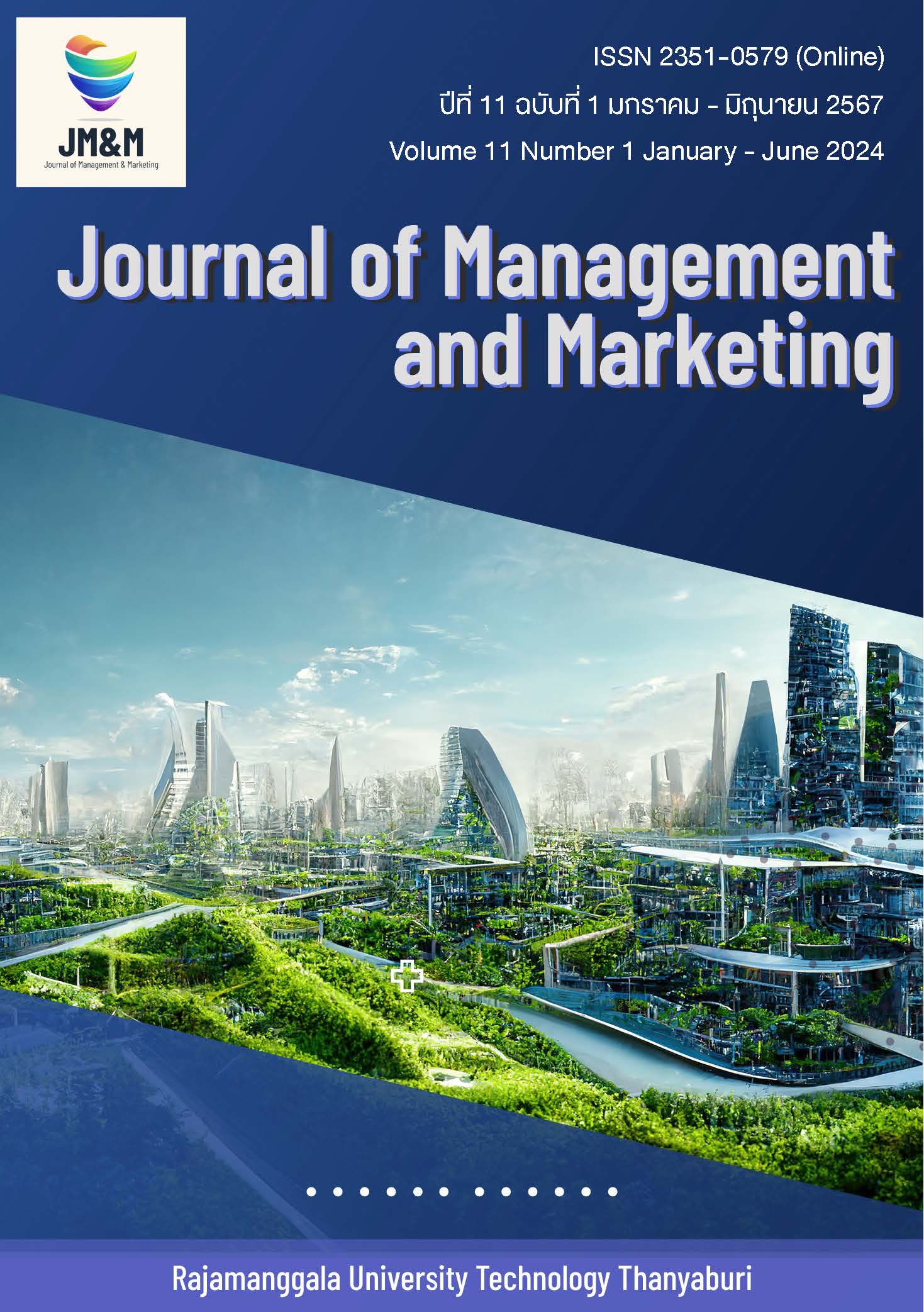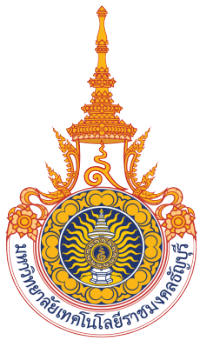EXPLORING THE LINK: HOW SERVICE QUALITY INFLUENCES STUDENT SATISFACTION AND FOSTERS LOYALTY IN EDUCATIONAL INSTITUTIONS
DOI:
https://doi.org/10.60101/mmr.2024.270680คำสำคัญ:
Private Universities, Service Quality, Student Satisfaction, Student Loyaltyบทคัดย่อ
Student loyalty has improved the sustainable development and survival rate of private universities. The quality of universities' services is an important indicator for measuring the results of private universities. This research aims to explore the mediating role of satisfaction between service quality and student loyalty. The researcher used a random sampling method to collect data from 493 responses of students in private universities in Guangxi. Using SmartPLS 4 software, the relationship between structures was analyzed using partial least squares (PLS) structural equation method.
The results indicated that service quality affected student satisfaction, which in turn influenced loyalty. However, service quality had no significant direct impact on loyalty. The impact of service quality on loyalty was indirect, as mediated by satisfaction. Therefore, while improving the quality of university services, university managers should pay more attention to the improvement of student satisfaction, and continuously promote the close connection and recognition of students with colleges and universities, to stimulate and consolidate the loyalty of students.
เอกสารอ้างอิง
Barclay, D., Thompson, R., & Higgins, C. (1995). Causal modeling of partial least squares methods: The adoption and use of personal computers as an case. Technology Studies, 285-309.
Cahyono, Y., Purwanto, A., Azizah, F., & Wijoyo, H. (2020). Impact of service quality, university image and students satisfaction towards student loyalty evidence from Indonesian private universities. Journal of Critical Reviews, 19(7), 916-924.
Chandra, T., Hafni, L., Chandra, S., Purwati, A., & Chandra, J. (2019). The influence of service quality, university image on student satisfaction and student loyalty. Benchmarking: An International, 5(26), 533-549.
Chandraa, T., Hafnia, L., & Chandraa, S. (2020). Effect of student service quality and university image on student satisfaction, loyalty, and motivation. Revista Argentina De Clinica Psicologica, 3(29), 789-798.
Chen, W. (2018). The effect of teaching quality and brand image in higher vocational colleges on improving student satisfaction. Journal of Hubei Radio & Television University, 38(6), 33-37.
Cheng, B. L., & Michael, T. H. C. (2020). Service innovation building a sustainable competitive advantage in higher education. International journal of services, economics and management, 4(10), 289-309.
Chi, J., & Shao, H. (2018). The impact of doctoral education service quality on satisfaction: An empirical study. Modern Educational Management, 8(5), 111-117.
Chin, W. (1998). The partial least squares approach to structural equation modeling. Modern Methods for Business Research, 295-336.
Cohen, J. (1988). Statistical power analysis for the behavioral sciences (2nd ed.). USA: Lawrence Erlbaum.
Dangaiso, P., Makudza, F., & Hogo, H. (2022). Modelling perceived e learning service quality student satisfaction and loyalty a higher education perspective. Cogent Education, 5(9), 1-20.
Doan, T. (2021). The influence of university sustainability practices on student loyalty an empirical study from Vietnam. Journal Of Asian Finance, Economics And Business, 10(8), 177-185.
Faliha, N., Siti, A., Kusdi, R., & Andriani, K. (2021). Online reservation system and online customer review_ its impact on brand image, trust and hotel booking decision. International Journal of Economics, Business and Accounting Research, 4(5), 409-425.
Fornell, C. & Cha, J. (1994). Partial Least Squares. Advanced Methods of Marketing Research, 407, 52-78.
Fornell, C., & Larcker, D. (1981). Evaluating structural equation models with unobservable variables and measurement error. Journal of Marketing Research, (18), 39-50.
Ge, W. (2016). The relationship between the image of universities and student satisfaction and loyalty. (Master’s thesis). Qilu University of Technology, China.
Guo, T. (2017). Innovation in teaching management in universities based on student satisfaction. (Master’s thesis). Jiangxi Normal University, China.
Hair, J. F., Hult, T., Ringle, C. M., & Sarstedt, M. (2022). A primer on partial least squares structural equation modeling (PLS-SEM) Using R: A Workbook (3rd ed.). Thousand Oaks: Sage.
Henseler, J., Ringle, C. M., & Sarstedt, M. (2015). A new criterion for assessing discriminant validity in variance: Based structural equation modeling. Journal of the Academy of Marketing Science, 43(1), 115-135.
Huang, B. (2017). University image, student satisfaction, and student loyalty in vocational colleges: a study based on the mediation mechanism. Journal Of Henan Mechanical And Electrical Engineering College, 25(5), 15-21.
Huber, F., Herrmann, A., Frederik, M., Vogel, J., & Vollhardt, K. (2007). Kausalmodellierung mit Partial Least Squares In Eine anwendungsorientierte Einführung. Germany: Wiesbaden.
Hwang, Y., & Choi, Y. K. (2019). Higher education service quality and student satisfaction, institutional image, and behavioral intention. Social Behavior And Personality, 2(47), 1-13.
Jiang, T. (2022). The impact of service quality in universities in the new era on student satisfaction: Taking an empirical survey of a university in central China as an example. Forum On Contemporary Education, 286(4), 93-99.
Jin, S., & Sun, L. (2020). Service quality based on student satisfaction. Higher Agricultural Education, 1(1), 61-65.
Kanduri, S., & Radha, B. (2023). Study on the impact of services offered on student satisfaction and the satisfaction led word of mouth by students pursuing management education. International Journal of Educational Management, 23(37), 526-538.
Kediri-Indonesia, K. I. P. P. (2023). The determinants of student trust and satisfaction in informal educational institution kampung inggris pare (pare british village) kediri-indonesia. International Journal of Management Studies and Social Science Research, 3(5), 286-306.
Liu, X. (2019). The satisfaction degree of Hebei university of science and technology based on structural equation model. (Master’s thesis). Hebei University of Science and Technology, China.
Ma, Y. (2018). The impact of commercial bank service innovation on bank performance. Management & Technology of SME, 9(10), 62-63.
Miah, M. (2021). Investigating structural relationship among service quality dimensions, customer satisfaction, and customer loyalty for conventional bank customers: Evidence from Bangladesh. Research gate, 4(3), 101-108.
Nursaid, N., Qomariah, N., Sanosra, A., Satoto, E. B., & Utomo, A. W. (2020). Improvement of job satisfaction based on work motivation, work environment, competence and compensation for hospital employees. Indonesian Journal of Law and Economics Review, 7, doi.org/10.21070/ijler.2020.V7.461
Oliver, R. L., Rust, R. T., & Varki, S. (1997). Customer delight: foundations, findings, and managerial insight. Journal of Retailing, 73(3), 311-336.
Parasuraman, A., Zeithaml, V. A., & Berry, L. L. (1988). Servqual: A multiple-item scale for measuring consumer perc. Journal of retailing, 64(1), 12.
Pelealu, D. (2021). Analyzing customer loyalty, service innovation, and brand image through customer satisfaction. Jurnal Manajemen SK, 1(10), 141-156.
Phonthanukitithaworn, C., Wongsaichia, S., Naruetharadhol, P., Thipsingh, S., Senamitr, T., Ketkaew, C. (2022). Managing educational service quality and loyalty of international students: A case of international colleges in Thailand. Cogent Social Sciences, 8(1), 2105929.
Rao, Y., Yang, M., & Yang, Y. (2018). Knowledge sharing, organizational learning and service innovation in tourism. Journal Of Service Science And Management, 9(11), 510-526.
Rasheed, R., & Rashid, A. (2023). Role of service quality factors in word of mouth through student satisfaction. Kybernetes, 7(3), 1-17.
Ringle, C. M., Wende, S., & Will, A. (2005). Smart PLS 2.0 M3. Hamburg: University of Hamburg.
Saneva, D., & Chortoseva, S. (2023). Measuring the service quality, customer satisfaction, and customer loyalty of selected fast-food restaurants during the COVID-19 pandemic. Business And Management, 11, 181-207.
Sari, E., Madhakomala, Priatna, B., Dian, Yatimah, D., Sudirman, & Ishak, F. R. (2022). Digital customer satisfaction service management model innovation through digital literacy-based digital service excellence education. International Journal Of Social Science And Human Research, 12(5), 377-386.
Setiawan, P., Purbadharmaja, I., Widanta, A., & Hayashi, T. (2021). How electronic word of mouth (e-wom) triggers intention to visit through destination image, trust and satisfaction the perception of a potential tourist in Japan and Indonesia. Online Information Review, 45(5), 861-878.
Shi, M. (2020). The relationship between student satisfaction and loyalty in vocational colleges. (Master’s thesis). Qingdao University, China.
Stefano, N., Zattar, I., & Filho, N. (2020). Assessment of service quality in the hotel industry: Use of fuzzy hybrid methodologies. Journal of Quality Assurance in Hospitality & Tourism, 1(13), 40-57.
Tan, P. S. H., Choong, Y. O., & Chen, I. C. (2022). The effect of service quality on behavioural intention the mediating role of student satisfaction and switching barriers in private universities. Journal of Applied Research in Higher Education, 4(14), 394-413.
Tithsatya, D. (2017). Quality of higher education services and student satisfaction: taking five universities in dongpu sai as an example. (Master’s thesis). Nanjing University, China.
Wang, B. (2015). Analysis on the innovation of bank financial services in the era of internet finance. Journal of Harbin Institute of Finance, 10(12), 37-39.
Wonganawat, S., Pungnirund, B., Techarattanased, N., Sin-Akorn, P., & Sawasdiruk, J. (2022). The influences of service innovation, service quality, satisfaction, and trust on loyalty behavior of service users of non-hotel homestay guesthouses in Bangkok Metropolis. International Journal Of Health Economics And Management, 6(S6), 243-256. doi.org/10.53730/ijhs.v6nS6.9497
Yamane, T. (1973). Statistics: An Introductory Analysis (3rd ed.). New York: Harper and Row.
Yang, H. (2023). Satisfaction and influencing factors of student users with university library management services. Heilongjiang Science, 14(9), 85-87.
Zhai, C., & Kong, H. (2020). The impact of higher education service quality on student satisfaction and behavioral intention. Heilongjiang Higher Education, 39(11), 53-58.
ดาวน์โหลด
เผยแพร่แล้ว
รูปแบบการอ้างอิง
ฉบับ
ประเภทบทความ
สัญญาอนุญาต
ลิขสิทธิ์ (c) 2024 วารสารวิชาการการตลาดและการจัดการ มหาวิทยาลัยเทคโนโลยีราชมงคลธัญบุรี

อนุญาตภายใต้เงื่อนไข Creative Commons Attribution-NonCommercial-NoDerivatives 4.0 International License.
บทความที่ได้รับการตีพิมพ์เป็นลิขสิทธิ์ของ ผู้นิพนธ์
ข้อความที่ปรากฏในบทความแต่ละเรื่องในวารสารวิชาการเล่มนี้เป็นความคิดเห็นส่วนตัวของผู้เขียนแต่ละท่านไม่เกี่ยวข้องกับมหาวิทยาลัยเทคโนโลยีราชมงคลธัญบุรี และคณาจารย์ท่านอื่น ในมหาวิทยาลัยฯ แต่อย่างใด ความรับผิดชอบองค์ประกอบทั้งหมดของบทความแต่ละเรื่องเป็นของผู้เขียนแต่ละท่าน หากมีความผิดพลาดใดๆ ผู้เขียนแต่ละท่านจะรับผิดชอบบทความของตนเองแต่ผู้เดียว









